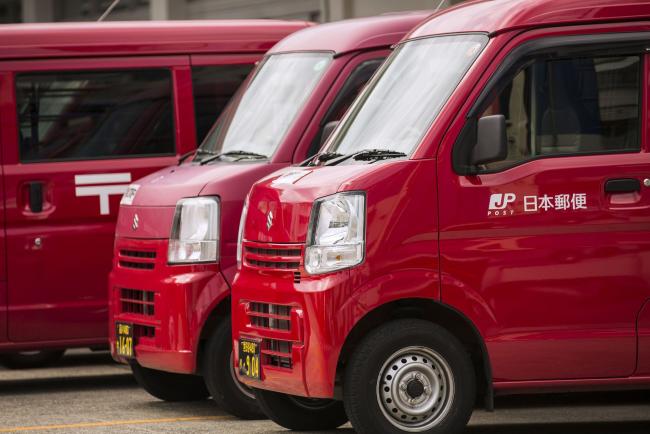(Bloomberg) -- The government’s plan to sell over $10 billion worth of shares in Japan Post Holdings Co. has been clouded by a scandal at its insurance unit.
The subsidiary, Japan Post Insurance Co., is voluntarily refraining from active product sales amid allegations of inappropriate sales practices. Both stocks have tumbled and concerns have grown over demand for the 1.06 billion shares Japan is looking to sell as early as September.
“The JPH sale may need to be delayed because of this scandal,” said Travis Lundy, a special-situations analyst who publishes on Smartkarma. “Given how the market has fallen, the high dividend is much less attractive.”
Japan Post’s privatization into three separate companies in 2015 was one of the country’s largest-ever initial public offerings. Some 80% of the shares were offered to retail investors, who turned out in droves, attracted by the stocks’ low prices and high payouts.
The sale of the third and final tranche of Japan Post Holdings shares would lower the government’s stake to a legally required minimum of around one-third. The holding company meanwhile is gradually selling down its stakes in Japan Post Insurance and Japan Post Bank Co.
Finance Minister Taro Aso said the timing of the share sale will be reviewed based on stock market trends and the state of the company’s business. A spokesperson for Japan Post Holdings declined to comment on the matter. Japan Post Insurance reiterated its apology for causing “disadvantages for customers” and that it is working to restore confidence.
Mitsubishi UFJ Morgan Stanley (NYSE:MS) downgraded the insurer’s shares on July 10 to neutral from overweight, saying that the process of rectifying sales activities may take at least one year. The shares have tumbled 35% from an April high.
Japan Post Holdings is down 19% since February. Some investors consider the shares more attractive following the decline. The stock is trading at 10 times projected 12-month earnings, compared with over 12 times for the benchmark Topix index. Its indicated dividend yield is 4.6% versus an average of 2.8% for Nikkei 225 stocks.
It’s also worth noting that when the government sold its second tranche of shares in 2017, Japan Post Holdings announced a buyback that supported the stock price.
“It’s a good enough time to buy the stock,” said Mitsushige Akino, executive officer at Ichiyoshi Asset Management Co. “There were various problems but it’s all out there now. And things are headed for improvement from here.”
The government’s sale will be lacking a major marketer following the omission of Nomura Holdings Inc. from the list of managers in the wake of its own problems. And it remains to be seen how big an impact the Japan Post Insurance scandal will have on demand for its parent’s shares.
“We’re not seeing a resolution for the insurance unit’s problem yet and it’s possible that this will take time,” said Tomoichiro Kubota, an analyst at Matsui Securities in Tokyo. “This will cool retail investors’ sentiment.”
